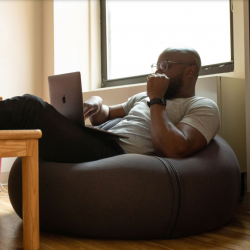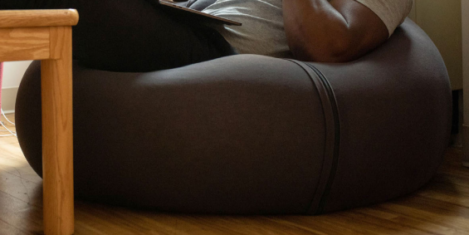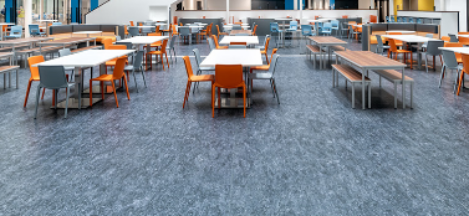February 17, 2021
Search Results for: flex
February 16, 2021
Investment in digital technology set to deliver £232bn boost to UK economy by 2040
by Jayne Smith • Business, News, Technology
 Investment in digital technology is set to increase UK GDP by £232bn (6.9 percent) in 2040, according to a new study by Virgin Media Business and the Centre for Economics and Business Research (CEBR). The research, which examines how more digital ways of working can support the UK’s economic recovery from Covid-19, claims investment in technology could boost the economy by £74bn in 2025. (more…)
Investment in digital technology is set to increase UK GDP by £232bn (6.9 percent) in 2040, according to a new study by Virgin Media Business and the Centre for Economics and Business Research (CEBR). The research, which examines how more digital ways of working can support the UK’s economic recovery from Covid-19, claims investment in technology could boost the economy by £74bn in 2025. (more…)
February 12, 2021
Mental health related workplace absenteeism costs soared to £14bn in 2020
by Jayne Smith • Business, News, Wellbeing
 The impact of the nation’s deteriorating mental health from Covid-19 lockdowns and other restrictions cost UK businesses £14bn last year, according to a study by Westfield Health. The cost of absenteeism from work due to mental health reasons increased last year by £1.3bn from 2019’s totals as work from home, travel restrictions, furlough and pay cuts changed the workplace for millions of people across the UK. (more…)
The impact of the nation’s deteriorating mental health from Covid-19 lockdowns and other restrictions cost UK businesses £14bn last year, according to a study by Westfield Health. The cost of absenteeism from work due to mental health reasons increased last year by £1.3bn from 2019’s totals as work from home, travel restrictions, furlough and pay cuts changed the workplace for millions of people across the UK. (more…)
February 11, 2021
Nearly half of young people put their career plans on hold due to pandemic
by Jayne Smith • Business, News
 More than 40 percent of young people aged 16-24 surveyed in the UK say they are putting their career or education plans on hold until the pandemic is over. The research, commissioned by BAE Systems to mark National Apprenticeship Week (8-12 February), looks at the impact the pandemic has had on the ‘lost generation’ and their career aspirations. (more…)
More than 40 percent of young people aged 16-24 surveyed in the UK say they are putting their career or education plans on hold until the pandemic is over. The research, commissioned by BAE Systems to mark National Apprenticeship Week (8-12 February), looks at the impact the pandemic has had on the ‘lost generation’ and their career aspirations. (more…)
February 10, 2021
Working from home causes people to drift into a ‘cycle of fatigue’
by Jayne Smith • Flexible working, News, Wellbeing
February 10, 2021
New Inverurie Community Campus features vast selection of KI seating
by Freddie Steele • Company news
 Opening its doors in late 2020, The Inverurie Community Campus in Aberdeenshire is a new £55m facility. One of the largest school constructions in Scotland, its 360 rooms accommodate 1,600 pupils and provides amenities such as a youth café, a community centre, and a swimming pool for students and the wider community. (more…)
Opening its doors in late 2020, The Inverurie Community Campus in Aberdeenshire is a new £55m facility. One of the largest school constructions in Scotland, its 360 rooms accommodate 1,600 pupils and provides amenities such as a youth café, a community centre, and a swimming pool for students and the wider community. (more…)
February 5, 2021
Majority of the workforce will need new skill sets to do their jobs successfully
by Jayne Smith • Knowledge, News
 HR leaders are finding it increasingly difficult to quickly find and develop talent with the most in demand skills, yet 58 percent of the workforce needs new skill sets to get their jobs done, according to Gartner, Inc. (more…)
HR leaders are finding it increasingly difficult to quickly find and develop talent with the most in demand skills, yet 58 percent of the workforce needs new skill sets to get their jobs done, according to Gartner, Inc. (more…)
February 5, 2021
Microsoft unveils new employee experience and wellbeing platform
by Freddie Steele • Company news, Technology, Wellbeing
 Microsoft has announced Microsoft Viva, which it claims is the first employee experience platform to bring tools for employee engagement, learning, wellbeing and knowledge discovery, directly into people’s workflow. Viva is designed to help employees ‘learn, grow and thrive’ in the new era of working life, and is designed to work alongside existing solutions such as Microsoft 365 and Microsoft Teams. (more…)
Microsoft has announced Microsoft Viva, which it claims is the first employee experience platform to bring tools for employee engagement, learning, wellbeing and knowledge discovery, directly into people’s workflow. Viva is designed to help employees ‘learn, grow and thrive’ in the new era of working life, and is designed to work alongside existing solutions such as Microsoft 365 and Microsoft Teams. (more…)
February 4, 2021
Working from home wellbeing outcomes vary enormously across groups
by Jayne Smith • Flexible working, News, Wellbeing
 With working from home set to continue for millions of UK workers, research by the Royal Society for Public Health (RSPH) claims that there are key health and wellbeing disparities between different groups of people who made the move to home working as a result of Covid-19. (more…)
With working from home set to continue for millions of UK workers, research by the Royal Society for Public Health (RSPH) claims that there are key health and wellbeing disparities between different groups of people who made the move to home working as a result of Covid-19. (more…)
February 3, 2021
COVID-19 is having an unequal impact on the mental health of workers
by Brendan Street • Comment, Wellbeing
 When the COVID-19 crisis hit the UK in March 2020, many commented that the virus didn’t discriminate and that its impact would be felt equally by everyone. However, as highlighted in Nuffield Health’s recent whitepaper, the mental health impact of the virus – rising from financial worries, anxiety around health and the direct impact of COVID-19 – has hit some groups harder than others. (more…)
When the COVID-19 crisis hit the UK in March 2020, many commented that the virus didn’t discriminate and that its impact would be felt equally by everyone. However, as highlighted in Nuffield Health’s recent whitepaper, the mental health impact of the virus – rising from financial worries, anxiety around health and the direct impact of COVID-19 – has hit some groups harder than others. (more…)
February 2, 2021
Working from home spells trouble for the careers of younger workers
by Helen Jamieson • Comment, Flexible working
 Lockdown meant that the choice to work from home was made for us. However, for many the decision to continue to do so post-lockdown will be a personal choice. The question we should all ask ourselves is, whether when we are outside of any lockdown restrictions, is working from home really a workplace revolution or simply an act of selfishness? For thousands of workers who’ve spent years of their lives commuting to offices that feel more like soul-less factories than inspiring and engaging workplaces, it’s no wonder that enforced work from home has proven popular. (more…)
Lockdown meant that the choice to work from home was made for us. However, for many the decision to continue to do so post-lockdown will be a personal choice. The question we should all ask ourselves is, whether when we are outside of any lockdown restrictions, is working from home really a workplace revolution or simply an act of selfishness? For thousands of workers who’ve spent years of their lives commuting to offices that feel more like soul-less factories than inspiring and engaging workplaces, it’s no wonder that enforced work from home has proven popular. (more…)






 Over half (54 percent) of UK workers say they are more open to taking on a side hustle or freelance work since the Covid-19 pandemic, according to new research from
Over half (54 percent) of UK workers say they are more open to taking on a side hustle or freelance work since the Covid-19 pandemic, according to new research from 



 Working from home is exacerbating an ‘always on’ culture. Data from a study of UK employees, conducted by virtual team building company
Working from home is exacerbating an ‘always on’ culture. Data from a study of UK employees, conducted by virtual team building company 













February 5, 2021
Workplace things we have missed, and those we hope to regain
by Emma Morley • Comment, Technology, Wellbeing, Workplace design